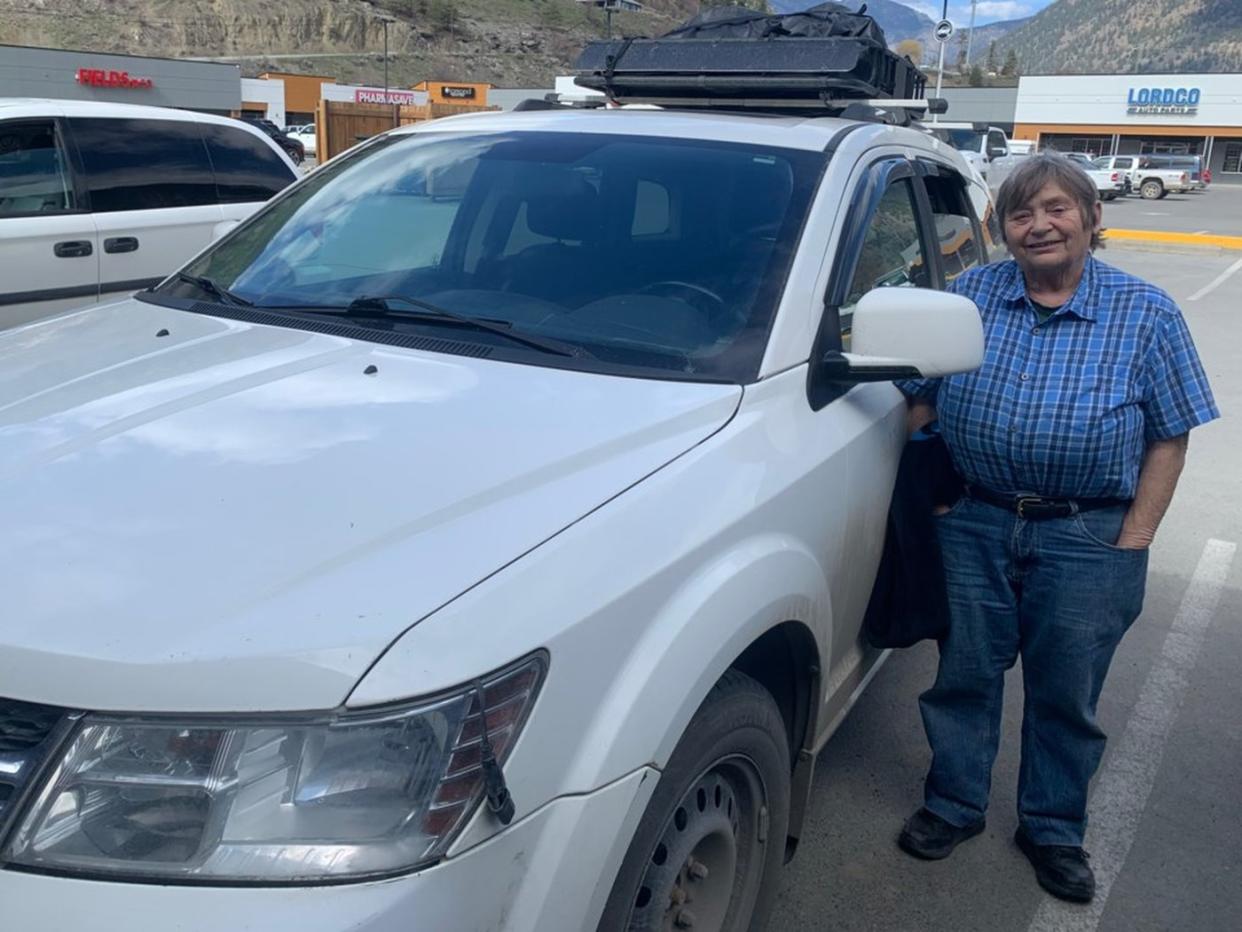'We are at risk of becoming a second Highway of Tears'

The former owner/operator of independent transportation service “Owl Bus” is urging politicians to take action to provide transportation between Mount Currie and Lillooet. Lillooet local Jill Stainsby fears people will have no option but to hitchhike as no other intercity service exists past Whistler.
Stainsby ran the twice-weekly intercity Owl Bus route between Whistler and Kamloops for nearly five years.
She parked her reliable white Dodge Journey for good on Feb. 1, citing her advancing age as her reason for stepping down. At the time, Stainsby stressed another transit company needed to take her place.
In a letter written May 25 and addressed to B.C. Premier David Eby, transportation minister Rob Fleming, Squamish-Lillooet Regional District Area B Director Vivian Birch-Jones, and Lillooet Friendship Centre Society executive director Carol Camille, Stainsby highlighted the declining state of the Duffey Lake Road.
In her letter, Stainsby said a reliable BC Transit or subsidized service would empower locals to access more services, and expressed her fears that former passengers’ safety will be compromised.
“Please give this request careful scrutiny and consider the safety and capacity that would be provided to residents of this area,” she said. “We are at risk of becoming a second Highway of Tears.”
The Lillooet woman went on to point out the Duffey Lake Road is in “rough” shape. “Two recent landslides have changed Duffey Lake, which used to stop at a log pile at the boat launch at the north end but now continues at least 100 metres further before it becomes Cayoosh Creek again,” wrote Stainsby. “The road is being undermined and the cement barriers are getting closer and closer to being pulled down, mostly but not entirely on the water side to the west of the road. The entire asphalt route is cracked, dented, folded and with new potholes and rockfalls.”
Stainsby explained logging and BC Hydro trucks are increasing their footprints on the route, while other industry is also picking up. “The Talisker Gold Mine in Gold Bridge is starting up again, planning to take its gold to the New Afton Mine processing facility near Kamloops,” she added.
Stainsby has also seen multiple crashes on the route while driving her bus.
“It seems to me that there are motorcycle fatalities every summer long weekend, and I have seen two such accidents this spring, although I do not know if they were fatal,” she wrote. “The bikes rested in ditches. I have been stuck behind several accidents and my vehicle was stuck south for five days after that big landslide.”
Stainsby added the Duffey is not just a tourist route for those travelling to Joffre Lakes or nearby campgrounds. People use the route to go shopping, get to work and to get medical care.
“More services exist in Pemberton, Whistler and Squamish than in Cache Creek or Savona or even Merritt. Transit access or subsidized service would be beneficial for all,” she wrote.
The former transit operator said most of her customers were First Nations. She sometimes allowed people to ride her bus for free.
“While Lillooet has approximately 2,500 residents, many of them Indigenous, the surrounding population is reportedly 5,500 people,” she said. “There are also populated First Nation territories located along unpaved Forest Service Roads. Lillooet needs a subsidized service over the mountains.”
Stainsby requested the government “prioritize a full repaving and renewing on Highway 99 from Whistler north to Lillooet and the Southern Interior of B.C. at the junction between Highways 97 and 99, 11 kilometres north of Cache Creek.
“If this needed to be done in two stages, then the Electoral Area B of the Squamish-Lillooet Regional District needs prioritizing,” she said.
The SLRD received Stainsby’s letter and escalated it to the board level.
Pique reached out to the Premier of B.C., Minister of Transportation and Infrastructure, SLRD Electoral Area B director, and Lillooet Friendship Centre Society for comment, but did not receive responses before press time.
public affairs officer for the Ministry of Transportation and Infrastructure, Ceara Kavanagh, acknowleged it is "important that people have access to safe, affordable, and reliable transportation so they can travel for work, appointments, and to see their loved ones."
She added the ministry is engaging with local authorities.
"We understand that while BC Transit operates a Health Connections route between Kamloops and Lillooet, the privately delivered Owl Bus ceased operations in February of this year," said Kavanagh. "Over the past year, the Ministry has been conducting engagement to learn about passenger transportation challenges in rural and regional areas. This included engagement in the Sea to Sky region last summer, and with First Nations communities and organizations across the Province. This initial engagement will help inform the work we will do with our partners across all levels of government going forward. We continue to consider long term strategies that can support a healthy transportation system and recognize the diverse needs of communities."
Roisin Cullen, Local Journalism Initiative Reporter, Pique Newsmagazine


